Lyricist Narayan Khatiwada’s "Men Also Cry in Silence" (Mauntama Purush Pani) Expresses the Hidden Pain of Men
Kathmandu — In our society, men’s sufferings rarely come to light. They too feel pain, but often conceal it, keeping it buried deep inside rather than expressing it openly. The belief that “boys/men shouldn’t cry” still runs deep in Nepali society. In truth, men’s tears are usually confined to solitude. Lyricist Narayan Khatiwada’s song "Men Also Cry in Silence" (Mauntama Purush Pani) delivers a profound message on this very issue.
The song depicts how men have no space to shed tears publicly, yet tears still fall—either within the heart or in private moments. It also portrays problems caused by increasing superficiality in society, misuse of technology, and certain laws shaped by one-sided thinking.
Nowadays, many men are becoming victims of various circumstances. This situation is smoldering within society like an unseen fire, and if not addressed in time, the song warns, it may one day erupt explosively.
With lyrics by Narayan Khatiwada, music by Shilabahadur Moktan, and vocals by Prabin Bhetwal, "How Many Men Must Have Cried in Silence" (Mauntama Purush Pani Kati Royeka Holan) has been released internationally via Namaste Nepal Digital Studio on major digital platforms. The song was mixed by Manoj Samsong Rai, mastered by Suresh Rai, and recorded at Studio King.
The song also highlights the absence of a dedicated mechanism to hear and address men’s grievances. While there are specific bodies for women, children, and senior citizens in the police and other institutions, there is none for men—meaning many incidents of male victimization remain hidden. The main reasons are that such issues are taken lightly, laws are unequal, and institutional mechanisms are lacking. This calls for reform in legislation, law enforcement bodies, and legal remedies.
The song makes it clear that merely following the law does not always guarantee justice. In fact, some individuals increasingly misuse legal provisions for personal gain—an attitude that must be reviewed and corrected without delay.
The music video features performances by Shova Khadka, Maheshwar Khatiwada, Santosh Dhimal, and Ganesh Kumar Dhakal. Directed by lyricist Khatiwada himself, the video is edited by Bikash Dhamala, with concept by Jagannath Khatiwada. Narayan Khatiwada has previously published numerous songs and books.
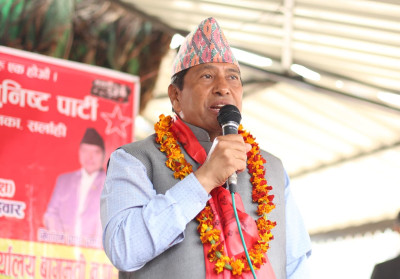
Each Vote Will Shape the Nation’s Destiny, Says Narayan Kaji Shrestha
February 15, 2026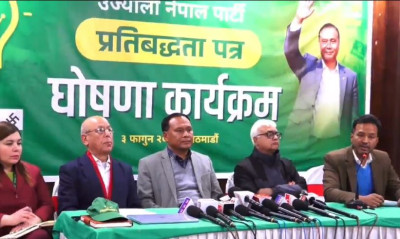
Ujyaalo Nepal Party’s Commitment Paper
February 15, 2026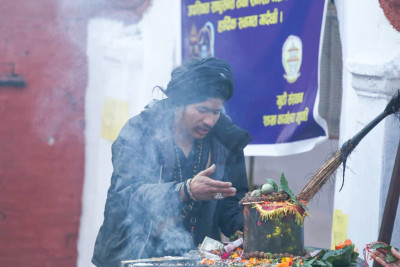
Mahashivratri: Worship of Lord Shiva and Festival Enthusiasm
February 15, 2026
Mahashivratri: Worship of Lord Shiva and Festival Enthusiasm
February 15, 2026
Election Police Beaten During Training in Rolpa
February 13, 2026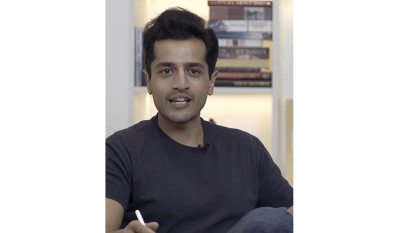
Five Charged for Vandalism and Theft at Sambhav Sirohiya’s Home
February 13, 2026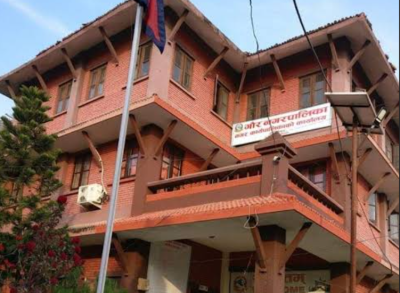


-1771149905.jpeg)
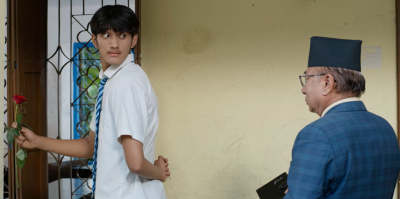
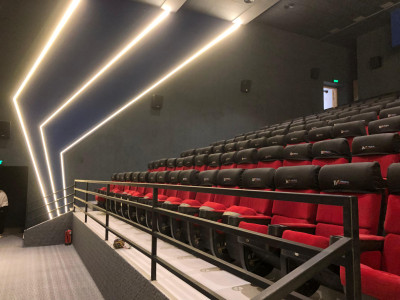
-1770888131.jpg)

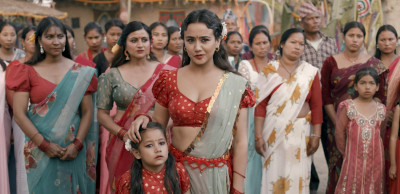
-1771142914.jpg)